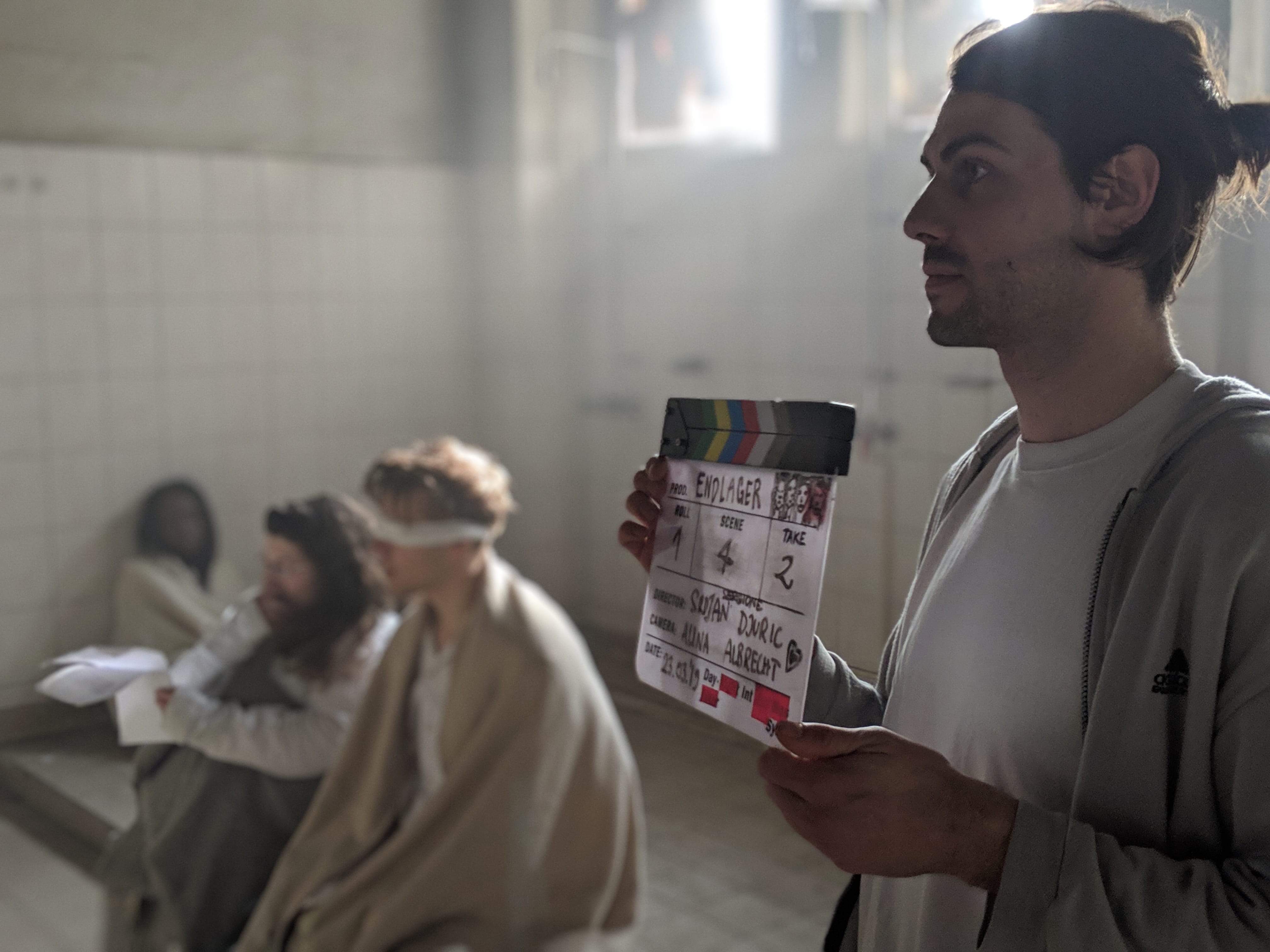Directing
Directing means guiding the viewer’s gaze.

Today, filmmaking is part of everyday life. This banalisation of audiovisual language has created a state of fragility and flux for the mediums of cinema and television.
In the face of this banalisation, an academic education in film directing is more important than ever, as it allows young filmmakers to fully delve into the cinematic language and its possibilities.
What is film directing? The ability “to tame the world according to a person’s particular passion”, as Frieda Grafe once wrote. It is therefore an activity, which is both alive and experiential, and that engages the Other. In this sense, film directing ultimately means: directing the viewer’s gaze. Not in the sense of direct communication – a film is not a message – but rather as an invitation to greater thought and feeling. Thus, the filmmaking experience is only complete when the film is experienced by the viewer.
To successfully direct films, there are many talents required that cannot be learned. But certain aspects of directing can be learned, for example, techniques that have historically been proven to be useful, and craft: in the areas of story development, working with actors, the language of visual storytelling, editing, etc. Directing students are invited to understand film history as an anarchist world of broken rules not governed by academic thought, and therefore a real treasure trove for ideas ready to be ‘stolen’ by the young curious filmmaker.
The DFFB encourages each directing student to develop an experimental filmmaking practice and to engage in an intellectual reflection of film theory. Simply put: students should think about what they wish to express and then fully experiment in the creation process. At all times, they should remain connected to the core questions of filmmaking: Why tell this story? How should this story be told? What is the meaning of this particular story?
The DFFB aims to teach, in an accountable and transparent manner, approaches to film directing that allow students to develop their own personal understanding of cinema. Lecturers at the DFFB teach many cinematic methods and approaches, ranging from experimental to more-established forms of storytelling. The goal is for students to discover their own individual artistic voice and to understand its place and role in modern society.
In the first and second academic years, all courses and seminars are arranged around practical film exercises. Through intensively collaborating together on tasks and working in various capacities on set, students develop a better understanding of the medium of film, as well as of each specialisation within the filmmaking process and its contribution to the whole. The priority is on creating a filmmaker who is versatile and whose creative focus will grow through this acquired broad-ranging knowledge of filmmaking. In the third and fourth academic years, these skills will be given the opportunity to fully develop through working on larger projects.
Christoph Hochhäusler
